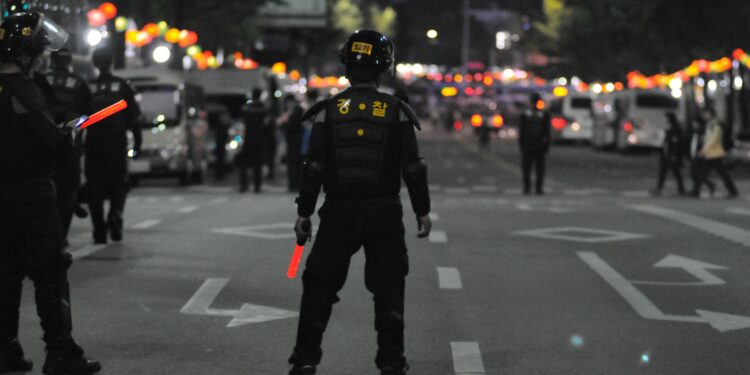Police-community relations play a pivotal role in maintaining social order and fostering a sense of security within a community. However, there are instances where these relationships become strained, leading to a breakdown of trust and accountability. One such case that garnered widespread attention was the situation in Ferguson, Missouri. In this blog post, we will explore the efforts made to rebuild trust and accountability in the aftermath of the events that unfolded in Ferguson.
Acknowledging Past Mistakes
To initiate the healing process, it is crucial to acknowledge past mistakes openly and honestly. In Ferguson, the tragic shooting of Michael Brown in 2014 led to widespread protests and a deep-seated mistrust between the community and law enforcement. Recognizing the gravity of the situation, local authorities and police officials took the first step by admitting their mistakes and expressing a genuine commitment to rectifying them.
Community Engagement and Outreach
Rebuilding trust begins with meaningful community engagement and outreach programs. The police department in Ferguson made concerted efforts to bridge the gap by hosting town hall meetings, creating community advisory boards, and establishing regular dialogue channels. This proactive approach allowed community members to voice their concerns, share their experiences, and actively participate in shaping the future of their community.
Diversity and Cultural Sensitivity
One crucial aspect of rebuilding trust is ensuring that law enforcement agencies reflect the diversity of the communities they serve. Ferguson recognized the importance of diversity within the police force and implemented initiatives to recruit officers from various backgrounds. Additionally, cultural sensitivity training programs were introduced to foster understanding and empathy towards different communities and their unique needs.
Transparency and Accountability
Transparency and accountability are paramount in rebuilding trust. To address the concerns raised by the community, Ferguson implemented body-worn cameras for police officers, ensuring transparency in law enforcement activities. The footage captured by these cameras serves as an objective record and provides a mechanism for both police officers and community members to be held accountable for their actions.
Collaborative Problem-Solving
Building trust requires a collaborative approach where police and community members work together to solve problems. In Ferguson, community-oriented policing strategies were adopted, focusing on building relationships and establishing mutual respect between law enforcement and residents. This shift encouraged officers to engage with community members in a non-confrontational manner, promoting problem-solving instead of perpetuating a cycle of tension and hostility.
Restorative Justice Initiatives
Restorative justice initiatives can be a powerful tool in rebuilding trust and healing community wounds. In Ferguson, programs were established to facilitate dialogue and reconciliation between victims, offenders, and the community. These initiatives sought to address the underlying issues that contributed to the strained police-community relations and promote healing and understanding.
Long-Term Commitment
Rebuilding trust is not a one-time effort; it requires a sustained, long-term commitment. In Ferguson, the progress made in restoring police-community relations is a testament to the ongoing dedication of both law enforcement and community members. It is crucial to maintain open lines of communication, evaluate the effectiveness of implemented strategies, and adapt as necessary to ensure continued progress.
Conclusion
Rebuilding trust and accountability in police-community relations is a complex and ongoing process. The case of Ferguson, Missouri serves as a valuable example of how communities can work together with law enforcement agencies to address systemic issues and rebuild fractured relationships. By acknowledging past mistakes, engaging the community, promoting diversity, ensuring transparency and accountability, adopting collaborative problem-solving approaches, implementing restorative justice initiatives, and demonstrating a long-term commitment, Ferguson has taken significant steps toward healing and restoring trust. These efforts can serve as a blueprint for other communities facing similar challenges, ultimately leading to stronger, more harmonious police-community relations.













Recent Comments